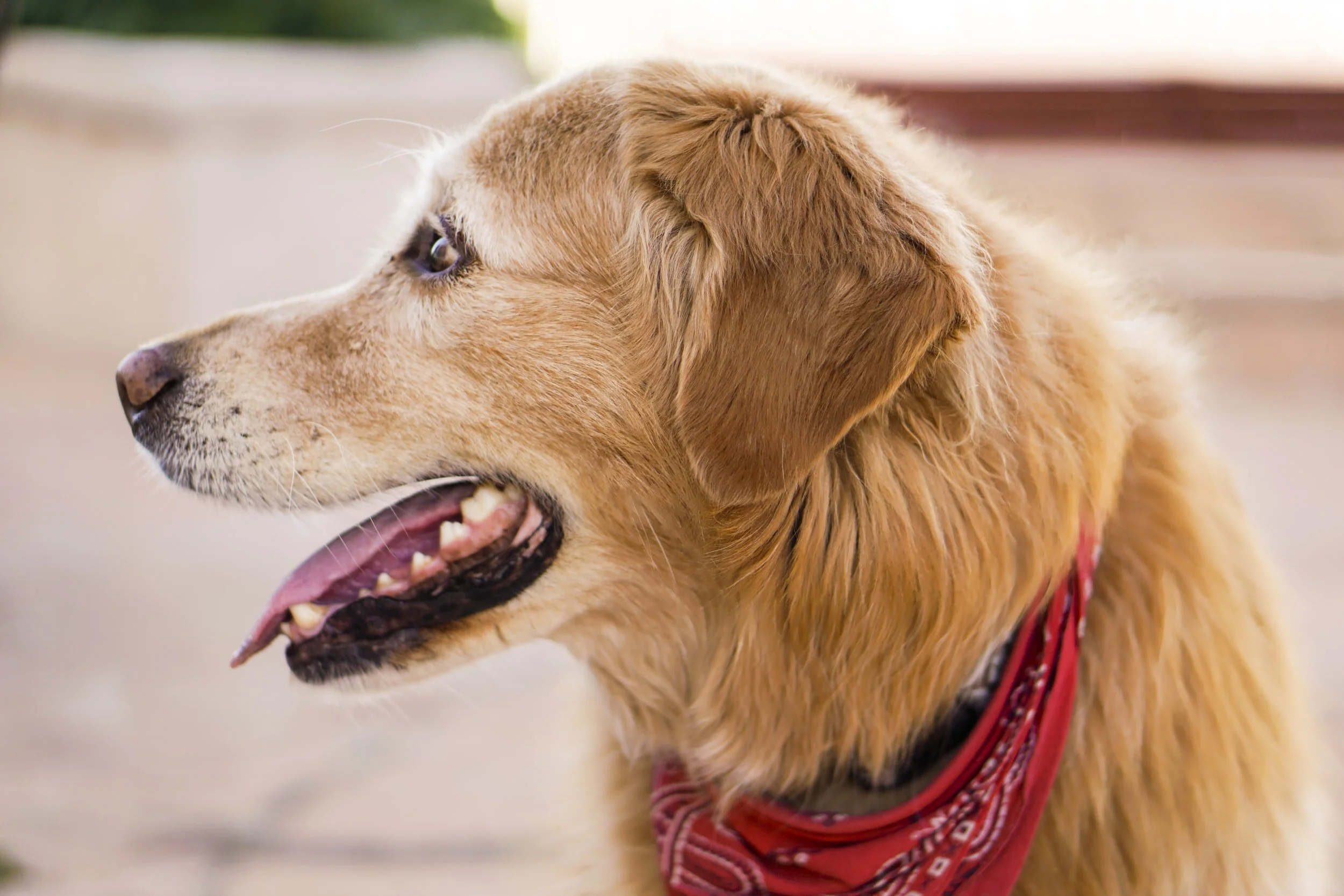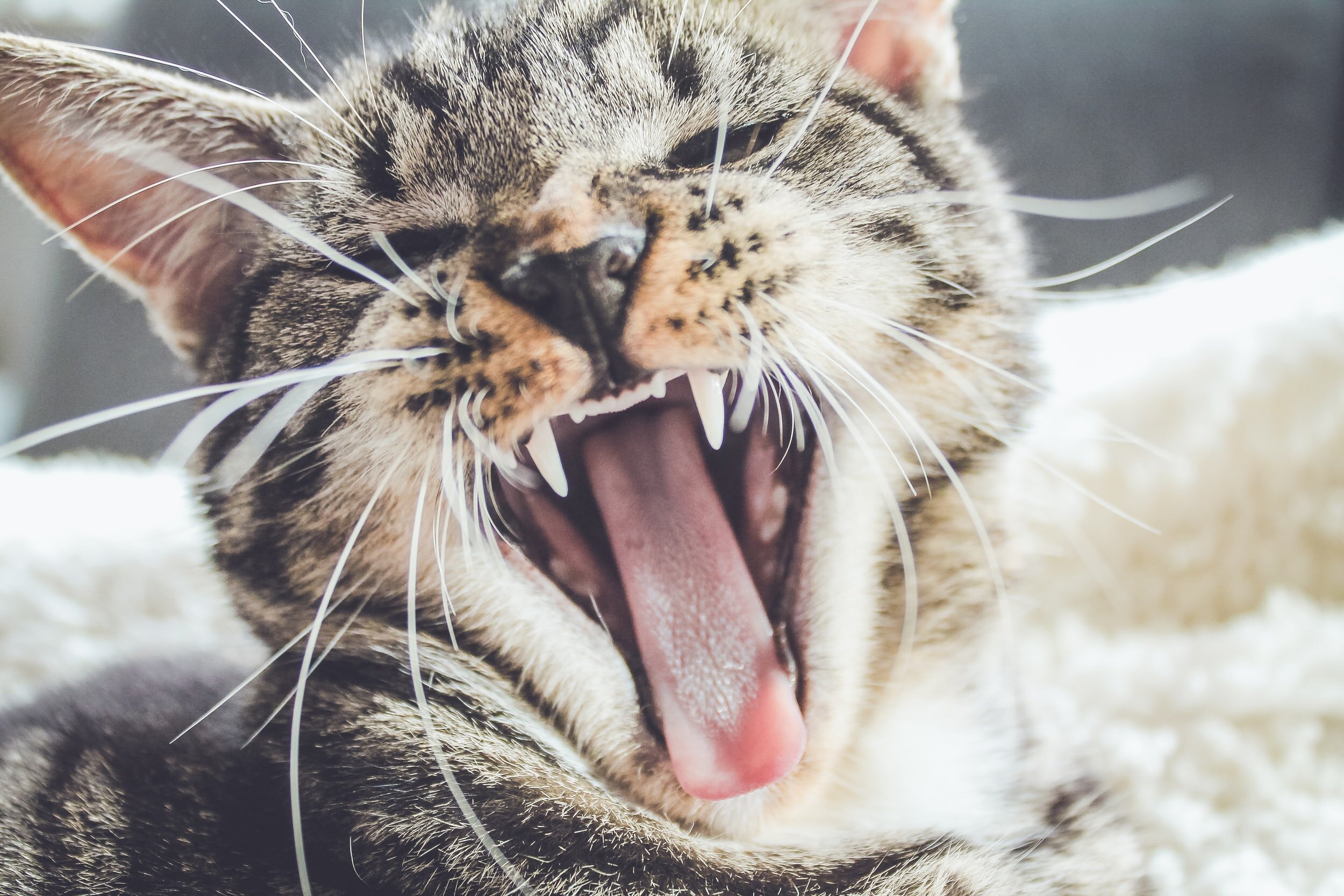The health of your pet’s teeth and gums has a significant impact on their quality of life. Unfortunately dental disease is a common health problem for many dogs and cats with around 80% of dogs and 70% of cats suffering from some form of dental disease by the age of three.
In addition to home dental care, we recommend you take your pet for a dental check-up yearly. So, what is dental disease? What is involved in a dental check-up? Also, what can I do at home to look after my pet’s dental health? Read on for the answers.
What is dental disease?
Dental disease or periodontal disease is a bacterial infection of the structures around your pet’s teeth. It starts with a build up of bacteria that can cause plaque. Plaque is a sticky, colourless film that constantly forms on your pet’s teeth. If the plaque is not removed, it builds up and hardens, creating calculus (or more commonly known as tartar).
This causes gum irritation and leads to an inflammatory condition called gingivitis, which is considered to be the early stages of periodontal disease. If left untreated, gingivitis can develop into periodontitis which can lead to pain, tooth loss and can also cause damage to vital organs such as the heart, liver and kidneys.
What is a dental check-up?
Dental check-ups give your veterinarian a chance to assess your pet’s oral health. Dental disease is common in pets, however can be prevented, treated and even reversed if discovered early. We recommend you take your pet for a dental check-up yearly. A dental check-up generally involves the following:
Check for obvious signs such as bad breath, drooling, pawing at mouth
Check your pet’s teeth
Assessment of your pet’s mouth, lymph nodes and jaw
Check gums for bleeding, swelling or masses
Check for periodontal pockets around teeth and gum line
Discuss preventative dental health care plan for future
If signs of dental disease are present, your vet may recommend at home dental care and a professional dental clean. In severe cases, surgery is often required to treat and sometimes extract the effected teeth.
What is a professional dental clean?
For adult dogs and cats with existing dental disease, a professional dental clean (scale and polish) from your veterinarian may be necessary to get their mouth back into top condition. This procedure is similar to what you would have experienced at your own dentist. Our professional dental clean generally involves the following:
Removal of plaque and tarter
Removal of dental deposits
Scale and polish to remove residual plaque and smooth the tooth surface
Rinse and final inspection
Discuss preventative dental health care plan for future
Professional dental cleans are completed under general anaesthetic to make the procedure as safe as possible for your pet and to allow for a through clean. In some instances your vet may need to take dental x-rays to assess parts of the teeth that are under the gum line, so cannot be seen.
How can I prepare my pet for a dental check-up?
To prepare your pet for a dental check-up and to keep their teeth in their best possible shape, you can conduct a dental care program at home. The best time to start is when your pet is young. This way they will get used to you touching around and inside their mouth and having their teeth cleaned. Similar to humans, there are a number of ways to look after your pet’s dental health between dental visits:
Check for common signs of dental disease - animals are good at hiding pain and illness so a monthly examination of their mouth could help identify any issues. If you notice any of these signs or if you have any concerns about your pet’s dental health, get in touch with us on 03 8784 4444:
Red, swollen or bleeding gums
Bad breath
Yellow or brown tartar build-up on teeth
Sore or sensitive mouth
Difficulty eating or reduced appetite
Drooling
Loose teeth or teeth loss
Pawing or rubbing mouth
Brush your pet’s teeth – regular tooth brushing isn’t just for humans, it can be great for your pet’s too! Many dogs and cats can be trained to enjoy the experience, particularly if you start when they are young. Check out our pet care sheet on “How to brush your dogs teeth”. We have some tips for dog’s and cats that hate tooth brushing too!
Chew away the plaque – dental treats and chew toys are a great way to clean your pet’s teeth and have some fun at the same time. The right treats and toys are designed to scrape against your pet’s teeth as they chew, helping to reduce plaque and tarter build up. Talk to our friendly staff about the right dental treat or toy for your pet.
Your pet deserves the best care to live a happy, comfortable life. Preventative healthcare such as parasite prevention, vaccinations and dental care are all important steps. For more information about dental health or to book a dental check-up call us on 03 8784 444.







